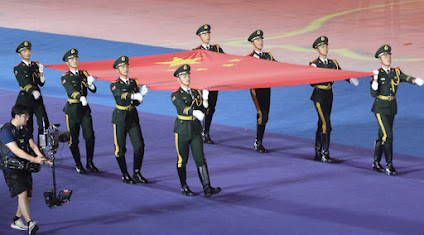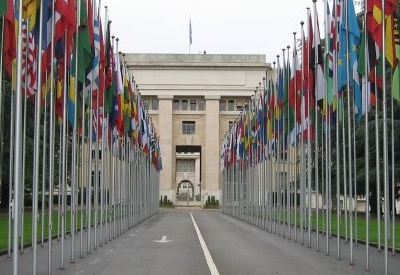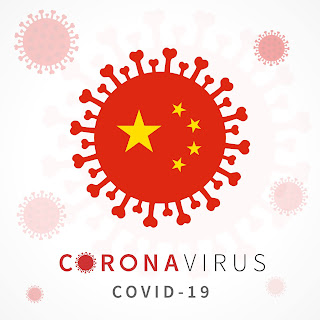Ultra-Nationalism stirring ideological sentiments in east vs west relations
 |
| Photo: AFP |
Abstract
The global commons is facing a democracy deficit in the 21st c. The rise of Vladimir Putin in May 2000 followed by Xi Jinping's appointment as General Secretary of the Chinese Communist Party in 2012, began a shift in nationalist policies in the Indo - Pacific region, that has a population of 1, 439, 323, 776 (China) and 145, 934, 462 (Russia.) Looking at these figures from Worldmeter (https://www.worldometers.info/world-population/population-by-country/) a shift away from an ageing Soviet Union and a youthful China to modern Russia in 2021 with a median age of 40 compared to China with a median age of 38 illustrates a universal ageing societal norm affecting economic predictors, despite the system of government. Critics of China's now defunct one-child policy can lay blame at the feet of Chinese officials for a large ageing population. Russia, by contrast, with a population one tenth the size of China is more nimble and can adapt to population fluctuations with more ease. However, considering both nation -states and their respective leaders, a semblance of democratization needs to be examined domestically, and within the international community to create a prediction of future outcomes for the maintenance of democracy on a global scale.
The Paradox of Soft Power
Authoritarian regimes exist for their monopoly on political power. The Party exists through military means and measures. By contrast, a democracy is a short lived collection of elected individuals given the mandate to govern"apparently" by the whole and is at the root an "electoral democracy." Voting by secret ballot is paramount to this form of voting rights and assembly. An individuals ability to exercise freedom of thought, assembly, and speech cannot be understated and would be a progression to the next level of democracy: "liberal democracy." Robert Dahl coined the term "Polyarchy" as a comparative use of "democracy" believing, instead, that a pure or actual form of democracy does not exist. I would concur with Dahl because people having freedom of choice in a democracy tend to introduce other non democratic forms into the social and economic fabric of a free society. Currently, a wave of nationalism is being swept up by those nation-states that can provide vaccines to combat COVID - 19 and variants opposite those countries that seek to inoculate their citizens and lack the technical and financial wherewithal to manage the crisis, effectively. China, a purely authoritarian nation - state founded on the principals of Marxism is seizing this opportunity to further its foreign policy agenda and global economic footprint.
On the Mainland, Chinese citizens find comfort in an authoritarian economy and strongman in Xi Jinping in uncertain times. Xi and the CPC (Communist Party of China) are emulating Mao's cult - of - personality among ordinary folks spurred on by recent periods of annual economic growth at around 6% and a resurgent pandemic economic rebirth as reported by the BBC at 18.3% - year over year - first quarter result.
Democracies are levying sanctions against Chinese officials over the evidence of genocide in Xinjiang against the Uyghur population. China's wolf-warrior rhetoric is threatening fire and brimstone economic penalties for those that speak out against a system that Chinese officials insist is innocent; re-education camps they are "selling" to the international community. "The ambassadors of the United States, Germany and Britain are due to address the virtual U.N. event on Wednesday, along with Human Rights Watch Executive Director Ken Roth and Amnesty International Secretary General Agnes Callamard.""The aim of the event is to “discuss how the U.N. system, member states and civil society can support and advocate for the human rights of members of ethnic Turkic communities in Xinjiang,” according to an invitation." - As reported by CNBC and Reuters. Washington has talked of boycotting the Olympics drawing a sharp rebuke from Beijing. Some, like Canadian officials remain reticent due to reprisals from Chinese leaders amid the pending fates of Michael Spavor and Michael Kovrig, detained in a tête-à-tête over the arrest of Meng Wanzhou. This asks the question: what is the opportunity cost in 2021 for authoritarian regimes to suppress human rights? What have we learned from the Nazi period, Tibet's occupation, and Vietnam, that can aid citizens of Xinjiang and Taiwan? What is the price to decouple from China and to what extent can that be achieved, seems to worry political foreign policy zealots and finance ministers. The cost of retraining workers to perform similar tasks at deflated wages with minimal employee benefits is practically an impossible venture in western democracies where worker rights are widely recognised as sacrosanct human rights policy(similar to basic human rights experienced on a daily basis) to be defended at higher judicial levels, if necessary. The absence of soft power will limit China's expansionist plans as western democracies are pursuing a free and open Indo - Pacific and universal human rights. The ripple effect of Chinese belligerence is that mid power countries including military stalwarts such as the United States, Japan and others are ratcheting up their military budgets. China has increased their military budget for 2021 to 6.8% to 209 billion USD. Taiwan will spend an additional 74.18 million USD to manage Chinese incursions into its ADIZ (Air Defence Identification Zone) in 2021.
Xi's Belt and Road Initiative is an economic Trojan Horse that promises a gateway to infrastructure programs. Conversely, the cost to nation states that default on project loans results in a loss of foreign policy decision making, economic fragmentation, and perhaps mistrust among peers in the international community that question Chinese sincerity and recipients overzealous acceptance to sign on to these deals.
Hobbes, referring to Liberty argued that freedom was the absence of "external impediments of motion" and that sounds similar to Isaiah Berlin's notion of Positive Liberty, which is the desire of an individual to be their own master. So, we have an international community be-struck by SARS unlike anything the modern era, wars aside, since The Spanish Flu (1918- 1920.) The CDC (Centre for Disease Control) estimates that 50 million lives were lost during the Spanish Flu compared to over 3 million lives since the onset of COVID - 19, according to John Hopkins University. One hundred years after the Spanish Flu we have antibiotics, vaccines, and better trained health care professionals to mitigate against COVID-19. In this challenging time people are faced with Berlin's concept of Negative Liberty; it is understandable with social distancing during these times that our liberty is being impacted negatively due to lockdown restrictions. Looking at daily lives through a pandemic lens separated by ideology, the cleavage has returned the international community to a cold war phase, amplified by nationalism and guided by authoritarianism and democracy. Is authoritarianism the nouveau directif as Chinese leaders spew, as their COVID numbers are impressive for a 1.54 billion population? Or, are we simply letting the Chinese authorities off of the proverbial hook for mishandling the origins of SARS and doing what China does best - capitalize on situations to better their economic position. China was allowed to wiggle away from the Tiananmen Square debacle. The same conflict in 2021 would require a military response; social media will apply pressure on foreign policy leaders to respond. Currently, Chinese authorities denounce any occurrence of genocide in Xinjiang of the Uyghur's. Tibet is selectively open to provide a distilled view for public consumption. The Office of Tibet reports that in the twenty years period following the occupation "1.2 million Tibetans, one-fifth of the country’s population, died as a result of China’s policies; many more languished in prisons and labor camps; and more than 6000 monasteries, temples and other cultural and historic buildings were destroyed and their contents pillaged." <https://tibetoffice.org/invasion-after>.
Libya,China, Central African Republic rated at 9 by Freedom House. Comparatively, the Gaza Strip is rated at 11, while North Korea is listed at 3. Canada is 98 and Italy is 90. Russia, unsurprisingly sits at - 2O.
Freedom House - Global Freedom Scores
"The coronavirus epidemic has revealed the rotten core of Chinese governance; the fragile and vacuous heart of the jittering edifice of the state has thereby been shown up as never before." Xu Zhangrun exclaims in his piece: Viral Alarm: When Fury Overcomes Fear, that ultimately got him banned from teaching at Tsinghau University and prohibit from publishing his thoughts. Therein lies the deceit of the CPC that inhibits freedom of thought to create positive solutions on an international level. This form of ultra nationalism resembles the fascism espoused by 1930's Nazi Germany. Xi Jinping is determined to advocate this limited form of democracy to advance his goal of establishing a long lasting legacy for himself, and dispelling China's 'Century of Humiliation' corresponding with The First Opium War in 1839. Xi's CPC approach is demonstrated by it's wolf-warrior approach to foreign policy and it's rigid claims to most of the South China Sea, which a UN Tribunal struck down in 2016 and that Chinese officials refuse to acknowledge. "Bai Meichu, an early-20th-century Chinese geographer, appreciated the power of his field. "Building the nation is what learning geography is for," he explained. In 1936, he demonstrated that maxim by publishing a map of the South China Sea. Along with observable coastlines to mark national boundaries, Bai's map included a theoretical line of nine dashes reaching out from China to scoop up the atolls, reefs and shoals speckling the sea - and, by claiming these, to assert control of surrounding waters." David Von Drehle, The Washington Post.
Consider Xi Jinping and his goal of creating a lasting legacy. His strongman military moves in the South China Sea are focussed on cementing a reputation among the Chinese population, but, more importantly, within the ranks of the C P C that hold the key to his tenure as leader. There are no elections to determine his fate, and, so, barring a poor economic performance by recent standards, a brusque military posture will endear him to people on the mainland and among the diaspora. He can and has adopted a piecemeal approach to pressuring Taiwan with "grey zone" tactics such as truncating their few remaining allies who support Taiwan as a sovereign nation state, while continually penetrating Taiwanese air space prompting repeated efforts by Taiwan's airforce to warn them away, while forcing Taiwan to dramatically increase military spending. Reuters reported a 15.42 USD billion 2021 budget for Taiwan's defence spending, approximately one-tenth of China's défense budget. Taiwan can in a veiled manner count on the United States policy of "strategic ambiguity" should they face attack by Chinese forces and Japan will fall into this category, being a strategic neighbour, as well. Taiwanese support is also being galvanized by the UK as it is is sending its new warship on a tour of the Indo Pacific during the Summer/Fall 2021 period.This flotilla strike group includes the centre-piece 60,000 ton carrier Queen Elizabeth, a nuclear submarine, two anti submarine frigates, and two front-line air - defence destroyers. This is an coordinated exercise aimed at preserving the rules - based international order that is threatened by China's bellicosity and a subtle message towards Russian aggression in the Baltic region and as a supporter of Xi's foreign and domestic policies. Xi Jinping is extending China's influence though his signature BRI (Belt & Road Initiative) offering infrastructure projects that are financed through Beijing.
Soft Power is a magnet for FDI (Forcing Direct Investment) as the majority of firms listed are held in democracies. China firms are given liberal access to free markets, yet, foreign firms vying for a piece of the lucrative Chinese market are subject to conditions that include the surrender of intellectual property rights, and are expected to be mute on China's human rights record, and domestic policies.
Soft power, including holding free and open elections provides legitimacy to state actors despite nepotism towards candidates that support the policies of a central authority. Chinese citizens, including the diaspora, like any other nation - state, revel in nationalism expressed politically, or through entertainment. Witness the ultra nationalism during the World Cup, for instance.
Xu Zhangrun refers to -Stability Maintenance" in his essay, that is a term that "includes the deployment of paramilitary forces, police, local security officials, neighborhood committees, informal community spies, Internet police and censors, secret service agents and watchdogs, as well as everyday bureaucratic monitors who hold a brief to be ever vigilant and to maintain order and control over every aspect of society. This is part of China’s “forever war” against its own citizens." It is striking that Chinese authorities are at war with Tibetans, at war with Uygurs, at war with Hongkongers, at war with Taiwan, at war with his own citizens. And, ultimately, forever at war with human rights and basic freedoms.
Conclusion
Joseph Nye coined the term: "Soft Power" where he talks about the interplay between soft power and hard power. Hard and soft power support and oppose each other. Nye states that "... a country that throws its weight around with without regard to the effects on its soft power may find others placing obstacles in the way of its hard power." China has trade and tourism as its core pieces of soft power. The central government is inhibiting its own economy with Xi'x hawkish tone on the international stage. The chart below indicates regions that are most prosperous, that, ultimately are democratic and recognize the value of soft power on their economies. Russia is dealing with sanctions for annexing Crimea and interfering in elections. Middle powers like Canada and Australia lack the resources to oppose China as both rely heavily on trade with the Mainland. The Quadrilateral Security Dialogue (U.S., Japan, Australia, India) is gaining traction to manage China's rise in the Indo - Pacific, while Canada is a member of the "Five Eyes" (Australia, Canada, New Zealand, United Kingdom and United States) that is an intelligence alliance in existence since 1941 to counter espionage.
Global Income Inequality 2021 |
|---|
| Region | National Income Top 1% Share | National Income Top 10% Share | National Income Bottom 50% Share | National Avg. (USD) | Population (Million) |
|---|---|---|---|---|---|
| Asia | 16.8 | 48.5 | 11.8 | 17,556 | 2,976 |
| Europe | 11.3 | 35.4 | 19.5 | 46,967 | 439 |
| Latin America | 24.6 | 54.4 | 10.1 | 20,442 | 436 |
| Middle East and North Africa | 22.9 | 55.8 | 12.1 | 30,982 | 302 |
| North America | 18.7 | 45.3 | 13.7 | 72,973 | 276 |
| Oceania | 14.5 | 39.1 | 11.3 | 43,579 | 29 |
| Russia and Ukraine | 21.6 | 47.0 | 15.8 | 25,457 | 149 |
| Sub-Saharan Africa | 20.2 | 55.1 | 9.8 | 7,771 | 520 |
Source: World Inequality Database, November 2020.






